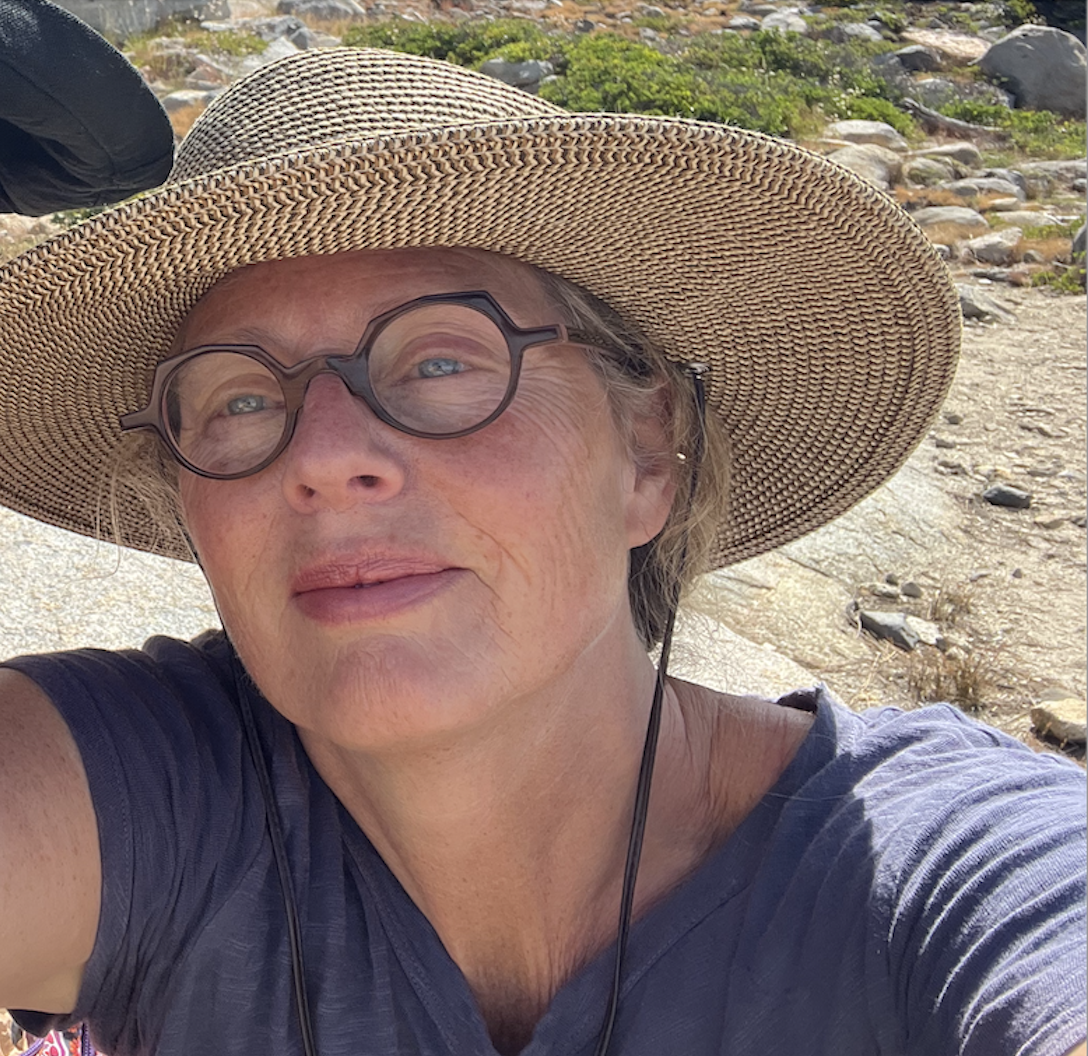
Website: http://susannecockrell.com
Bio: "Susanne Cockrell is an artist and educator who lives and works in the San Francisco Bay Area. Her social and documentary projects consider the ways people live into specific places over time, amplifying the emergent choreography of landscape, shared experience, and participatory actions in shaping collective and civic life. Her practice and teaching over the last 20 years has explored the interdisciplinary medium of social practice, often situated in public or social contexts in which participants become collaborators in the construction or manifestation of the work. Fieldfaring Projects, in collaboration with Ted Purves from 2002-2017, asked questions about systems of critical exchange, collectivity and farming in the urban landscape through the lens of informal social economies and rural aesthetics. Early research in experimental dance and choreography, environmental studies, and eastern philosophy continue to shape her craft with an attention to ephemeral encounters and poetics of daily life. She is Professor of Graduate Fine Arts at California College of the Arts in San Francisco. Her projects have received support from the Center for Cultural Innovation SF, Center for Sustainable Creativity, Czech Republic, Contemporary Art Center Cincinnati, Yerba Buena Center for the Arts SF, SF Cinematheque, Berkeley Art Museum and Pacific Film Archive, Creative Work Fund SF and Creative Capital Foundation NYC. She has an MFA from California College of Arts and Crafts in Film, Video, Performance. She studied Environmental Studies and Anthropology at the University of Vermont before receiving her BA from Burlington College in Dance/Movement and Transpersonal Psychology. "
Statement: " Social and public art projects operate laterally and slowly, with the intention to shape social movements or public flows, local or regional issues often flying under the radar of the dominant art world. Long term and process driven engagement is a strength and not always punctuated by traditional forms of exhibition. What gets “made” and what is “presented” as “outcomes” is often less critical or important than the conversation and process of research - how we articulate issues and troubles and make them conscious to ourselves and others. We reimagine what public and communal life can be when we expand our understanding and experience of public to include ancestral flows, ecological systems, and the forces that are shaping global transitions. In times of ecological crises and deep social and political fracture, generative resistance and collective actions by artist and many others offer different stories for alternative futures that nourish resilience and new vocabularies for ways of being with and for each other. My teaching practice asks how a class is a learning site? Can co-creation methods of production facilitate deeper conversations and knowledge transfer? I usually design courses wherein students build a vocabulary for actions in contextual situations to experiment intervening in social and public realms. We situate art practice alongside the current landscape of social and ecological ruptures and collectively figure out how to infuse justice, ethical actions and reciprocity into project development and critique. "